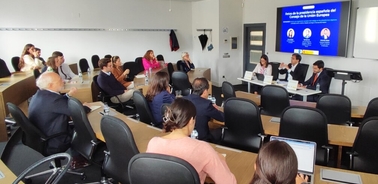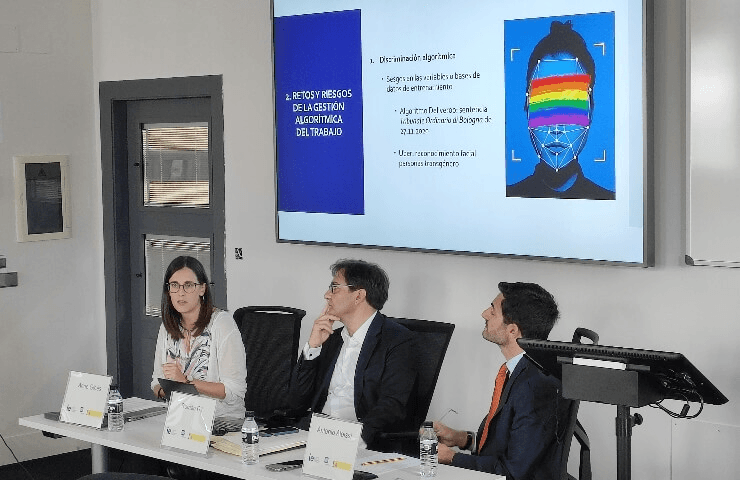- Home
- We Are Law School
- News
- Towards A European Regulation Of Work On Digital Platforms
Towards a European regulation of work on digital platforms

The IE Center for European Studies organizes a meeting to talk about this form of employment that is growing rapidly and comes in many shapes and sizes.
On September 21, IE University’s Campus played host to the seminar 'Towards a European regulation of work on digital platforms'. Organized by the IE Center for European Studies, it is sponsored by the 'Hablamos de Europa' program, of the Secretary of State for the European Union, belonging to the Ministry of Foreign Affairs, European Union and Cooperation of Spain.
At the event Anna Ginès, Associate Professor at ESADE; Román Gil, Partner at Sagardoy Abogados and Adjunct Professor at IE Law School; and Antonio Aloisi, Assistant Professor at IE Law School, analyzed the most relevant aspects of the Proposal for a directive on improving working conditions in platform work, presented by the European Commission in December 2021.
Currently, according to data from the Council of the European Union, over 28 million people in the EU work through one (or more) of these digital labour platforms. In 2025, that number is expected to reach 43 million people. Platform work comes in many shapes and sizes, making it difficult to address by regulation. The EU wants to steer it along a path that better balances the interests of platforms and workers.
The proposed directive seeks to ease the access of people working through digital labour platforms to the legal employment status that correspond to their actual working arrangements. In this regard, Antonio Aloisi, Assistant Professor at IE Law School, pointed out that this proposal “is innovative and focuses on employees and the self-employed; It also offers the possibility of involving worker representatives. Social agents have a very important challenge."
Anna Ginès, Associate Professor at ESADE, explained that algorithmic work management entails risks that society must face: algorithmic discrimination; constant monitoring; algorithmic insecurity; as well as the corrosive impact in terms of occupational health and safety. “People do not know the variables that platforms use to make decisions. There is a high level of opacity regarding the knowledge of how automated systems work,” she highlighted.
Román Gil addressed, from a labor point of view, problematic aspects of the activity of the workers of these platforms such as remuneration, penalties, freedom to choose one's working hours or periods of absence, etc. Thus, for example, he asked the attendees “Is the geolocation used by digital platforms a control system? It can be used to let the end customer know where their order is or calculate the distance to the delivery person.”
As mentioned earlier, the European Commission put forward its proposal on new rules for platform work to the two co-legislators, the Council and the European Parliament, on December 9, 2021. The Council adopted its position on June 12, 2023. The new rules need to be negotiated with the European Parliament before they can become EU law.
